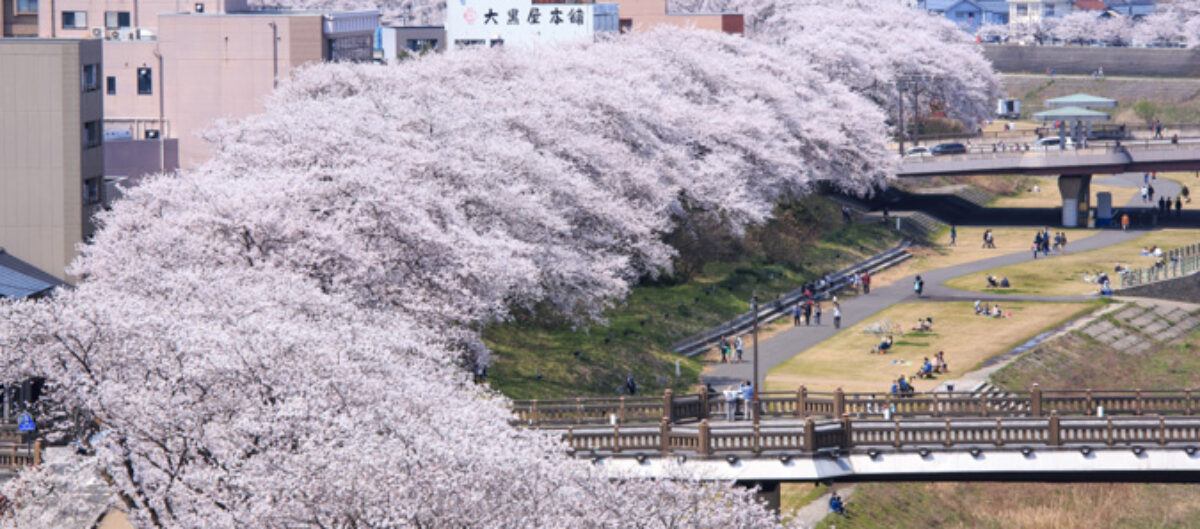When you click on the numbers on the map, you can see tourist information.
①JR Fukui Station ②Fukui Railway’s Fukui Station
③Happiring(a shopping complex)
④Seibu Fukui(a department store) ⑤Yokokan Garden
⑥Fukui Castle Ruins ⑦Fukui Shrine
⑧The ginkgo tree in Fukui Shrine ⑨A statue of Okakura Tenshin









